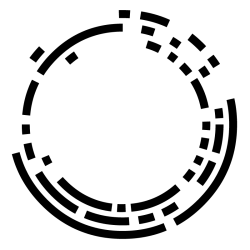Who doesn’t love a good paradox? Life and especially physics is full of them.
The paradoxical nature of our realities is precisely the reason I wouldn’t ever want to be identified with an expert role. Let me elaborate:
No matter how much you know on a subject, in order to present yourself as an expert in that field you need to ignore all that you don’t know on that subject.
Take any field, let’s say physics: it is humanly impossible to hold in understanding all the existing theories on any segment of physics. No matter how smart you are, no matter how much of your life you dedicate to the subject, the sheer amount of information out there surpasses any human being’s ability to grasp. Consequently, whenever one publishes a theory one needs to only present the facts that one initially took into account when working on that theory. One might say that peer reviews have the exact purpose of poking at the publisher’s own biases and one is most probably right. Also laboratory experiments confirm theories. But we all know that theories that have been considered to be true by the physics community have been later debunked, as is the example of aether. or not…
More on the scientific method in this article.
So, in order to be an expert, you need to consider yourself to be right so that you can then exercise your expertise, even though deep down inside you know you’re probably wrong.
At the most fundamental level of our documented reality, there is no absolute truth: The Double-Slit Experiment
The above-mentioned experiment demonstrates that light (and also electrons, atoms, and molecules) behave in apparently opposite manners depending on how they are measured.
This is a very important “fact” to take into account when understanding the nature of reality. There is no absolute truth… How about time? Isn’t time true? We grow old, days turn into nights, so time must be an absolute truth… According to Carlo Rovelli it’s not. And there are countless examples of well documented and/or proven facts that demonstrate that there is no absolute truth.
We need experts to build the outer world.
From a doctor to a mechanic, going through marketing and consulting, nobody would pay for someone who says “Well, I’m not really sure about what I’m doing here…” so the whole society from education to entertainment, news, politics et al. is built around the idea of certainty. And that is why whenever I’m not present to this intuitive understanding and I’m just trying to “fit in” I feel like I’m very ill-prepared for this reality.
But to help maintain our inner world, we need a completely different type of professional.
I am in a rather lonely place where I am intelligent enough to understand how little I actually know about the world but not intelligent (or diligent) enough to deepen my expertise in any domain. I am what you might conventionally define as lazy, but after a deep scrutiny over almost 7 years I realize that it’s not because I am lazy that I don’t go deeper into the domains I spend time on. Nor is it because of my poor memory or difficulties I have focusing on one thing at a time (I’m sure that if tests would have been carried out while I was in school I would have been diagnosed with some form of ADD). Rather all of the above are consequences of my deep understanding of the fact that there is no absolute truth.
This is why I coach. When I am coaching, it is in my job description not to know things. My only responsibility is to make sure my training is done, my certifications are passed and I am PRESENT. Being present is for me the only absolute truth there can be. It’s creating a time-space for the client where your own biases, judgments, fears, and projections are checked at the entrance and the client is free to develop his own paradigm. Presence is what allows me to be an expert at not being an expert. To intervene minimally only when I feel it’s appropriate and to do it in a humble vulnerable way…


One Reply to “I strive to be an expert at not being an expert”